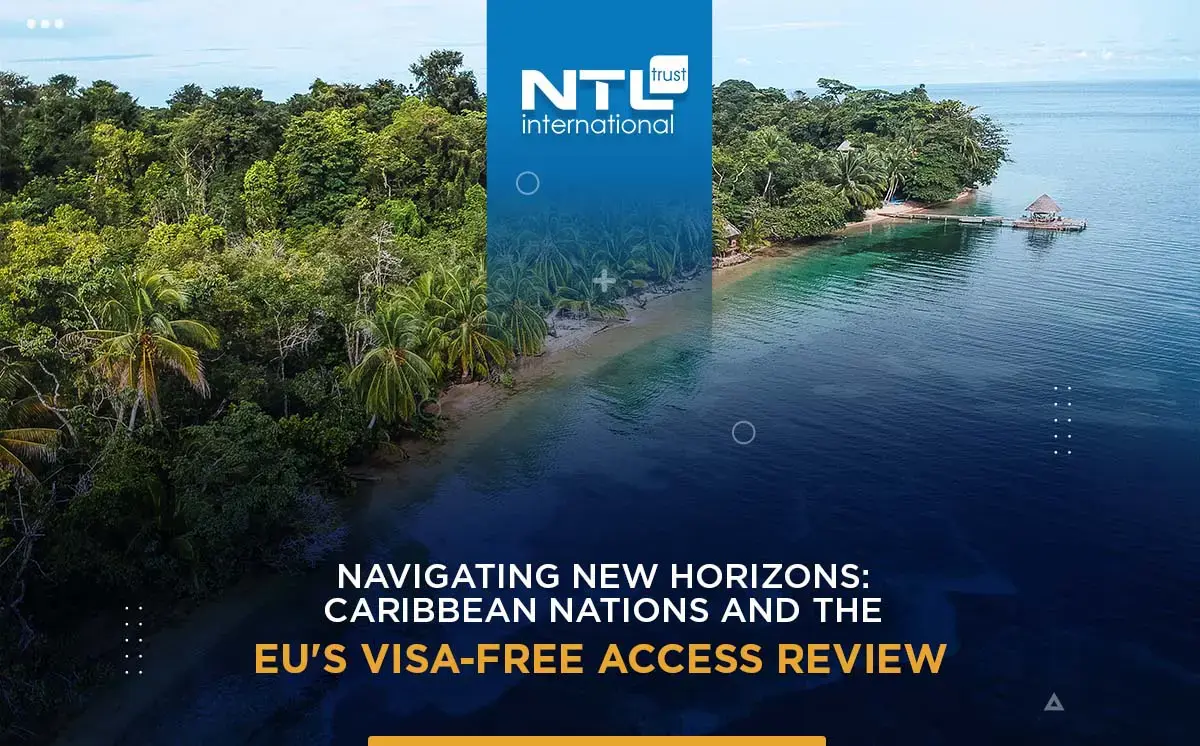
Navigating New Horizons:
Caribbean Nations and the EU’s Visa-Free Access Review
In recent discussions, the potential for the European Union (EU) to adjust its visa-free agreements with Caribbean nations offering Citizenship by Investment (CBI) programs has come to the forefront.
This development is rooted in concerns over security and transparency within these programs.
The EU’s considerations reflect a broader dialogue on the integrity of international travel systems and the importance of stringent vetting processes.
The Implications and Opportunities to the Caribbean nations:
While the prospect of restricted visa-free access presents challenges, it also opens a doorway to significant opportunities for Caribbean nations.
By addressing the EU’s concerns, these countries can enhance the global perception of their CBI programs, demonstrating a commitment to high standards of due diligence and transparency.
This process could not only satisfy EU requirements but also attract a reputable clientele, thereby strengthening the programs’ integrity. Moreover, this situation underscores the importance of economic diversification for Caribbean nations.
Lessening dependence on CBI programs by investing in other sectors – such as renewable energy, digital services, and sustainable tourism – could provide more resilient revenue streams.
Such diversification efforts would contribute to a more stable economic future, reducing vulnerability to international policy shifts.
Read more: CARIFTA Games
Strategic Actions for Caribbean Nations:
To navigate these challenges effectively, Caribbean countries are encouraged to undertake several key actions:
- Enhance Program Transparency: Implementing robust vetting processes and improving transparency around the issuance of citizenship through investment can address security concerns and build trust in these programs.
- Engage in Constructive Dialogue: Proactive engagement with the EU to understand and address concerns, and negotiate terms, is crucial. Diplomatic efforts can pave the way for mutual understanding and potentially prevent restrictive measures.
- Foster Regional Collaboration: A unified approach to standardizing CBI program practices across the Caribbean can strengthen the region’s position in negotiations and ensure consistency in addressing international standards.
Read more: The CARICOM convention
- Prioritize Economic Diversification: By focusing on the development of alternative economic sectors, Caribbean nations can reduce their reliance on CBI programs and build a more diversified and sustainable economic base.
- Strengthen Legal Frameworks: Updating legal frameworks to better combat money laundering and financial crimes will further align Caribbean CBI programs with international best practices, addressing some of the EU’s critical concerns.
The potential review of visa-free access by the EU presents both a challenge and an opportunity for Caribbean nations. By taking proactive steps to reform CBI programs, engage diplomatically with international partners, and pursue economic diversification, the Caribbean can turn this challenge into a catalyst for growth and development.This moment calls for strategic action, collaboration, and innovation to ensure that Caribbean nations continue to thrive in an ever-evolving global landscape.
Michael Martin is the new CEO of the St Kitts and Nevis CBI Unit
Michael Martin has been announced as the new CEO of CBI Unit in Saint Kitts and Nevis.
Starting work on the PVIP program in Malaysia
Starting work on the PViP program in Malaysia with the beginning of last October
The latest updates in the Turkish CBI law through real estate ownership
With the beginning of the new year, work will start in accordance with the latest updates of the Turkish CBI Law through real estate ownership.
Green Visa in UAE, longer stay & more facilities
Recently, the UAE has started receiving applications for Green Visas/residence permits.
As part of an ongoing effort to create new opportunities and attract a larger audience of investors and entrepreneurs, the UAE has introduced a new visa that allows its holder to reside in Dubai for 5 years, with the possibility of renewal.
President Erdoğan launches the largest housing project in Türkiye
The Turkish President Mr. Erdoğan, announced in a speech yesterday the work on the largest housing project in Turkey.





